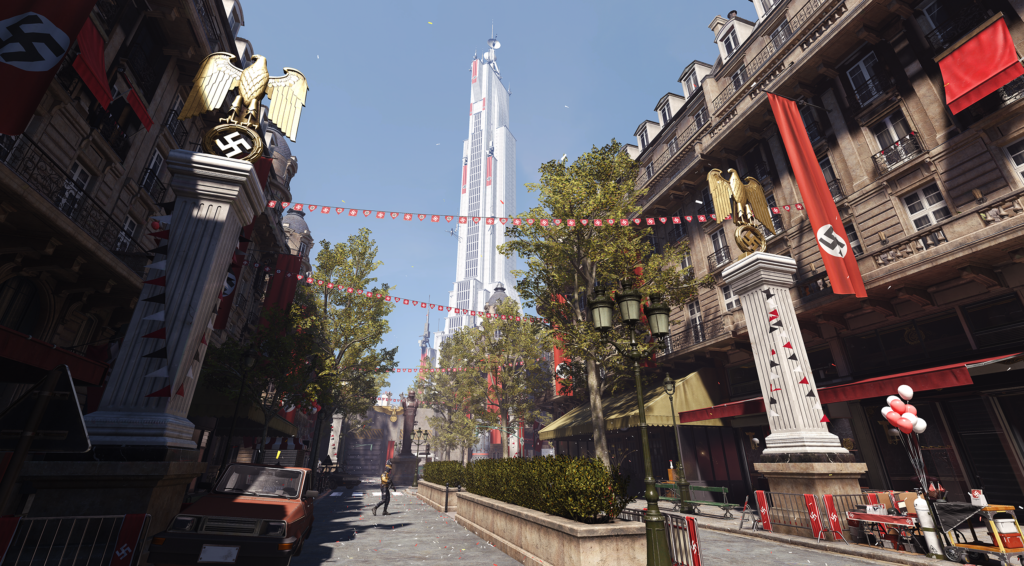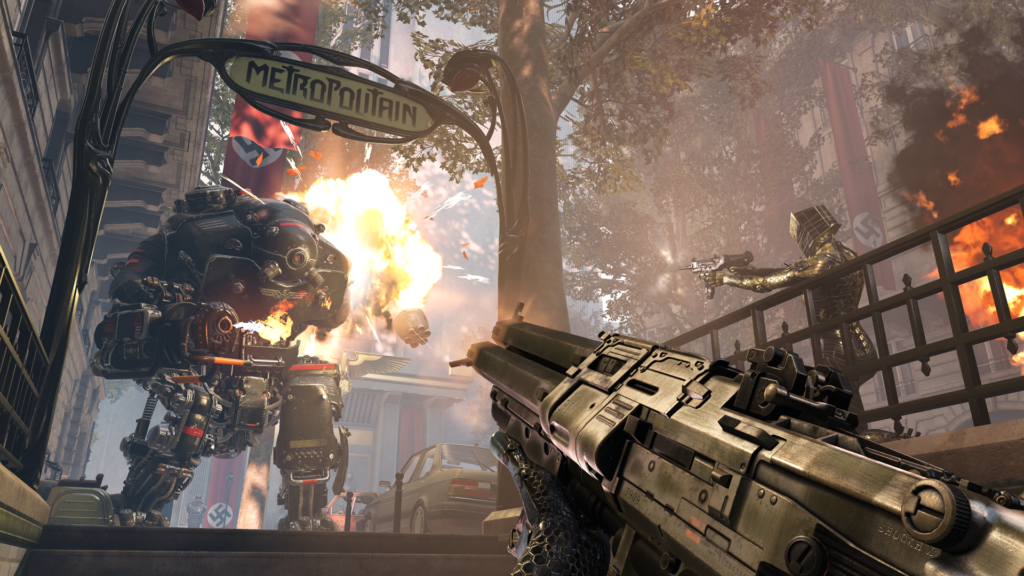
Coming Home-Wolfenstein: Young Blood
When it was revealed that the next entry in the Wolfenstein franchise was going to be a Paris-set game with female protagonists and French developers Arkane Studios at the helm, I was ecstatic. I’ve always enjoyed the series — who doesn’t love shooting nazis?— and Arkane Studios produced my favourite game of all time, Dishonored. It’s no surprise I love this game is what I’m getting at; as a French anarchist, I’m exactly its target audience.
What I could have never predicted during the initial E3 announcement is who I’d end up playing it with. In early 2019, through shared creative industries and online networks, I met the woman who would become my girlfriend a few months later. Come the game’s release I had fallen in love with her in a way that had never happened to me before.
From the very first time Wolfenstein: Youngblood started up it was a very special experience; getting to see Anya and B.J. Blazkowicz older and raising a family felt like the culmination of the previous two games, which my girlfriend hasn’t played, so I got to catch her up quickly on not essential but useful to know details — to talk to someone about something you love and to have them truly enjoy listening is one of the greatest feelings.

As we shot Nazis and kicked ass through the Paris streets, I felt like I was showing her my hometown — save for some differences in appearance thanks to the game’s alternate take on history, the way it’s depicted in Youngblood is decidedly faithful. I moved away from France in 2016 and have only been back a handful of times since, but it was still important to me to see the game do it justice. There’s something about Paris that few depictions of it get. It’s a hard feeling to capture and seal in media; the way the streets sprawl and lead you to unexpected but beautiful corners. How the architecture bears the weight of hundreds of years of history but doesn’t suffocate you. I found all of that in the level design, and it felt like coming home.
Wolfenstein: Youngblood establishes a strong sense of place that’s specific to Arkane Studios — in the Dishonored series, the fictional city of Dunwall bore influences from the Haussmannian architecture that gives Paris such a particular look, but with a gothic steampunk twist; Youngblood sees them go back to their roots, transposing the real thing to the game. Playing through the levels as a French person, it was obvious to me how much of a hand fellow French people had had in the design. I felt understood and seen rather than seeing the dozen of inaccuracies I can usually point out in other depictions of my hometown and getting lost in the world felt comforting rather than disorienting or frustrating.

Instead of playing the game solely to advance in the story, we took our time. We explored and meandered while I told her about how the Métro works and talked about growing up in South Paris. The use of the Catacombs as a base led to us talking about how we’ll definitely go for a tour when she visits Paris for real. The incredible detailing in the game also enabled me to present my hometown as a real place rather than the postcard image most people have; Paris doesn’t need the Eiffel Tower to be special, and the focus Youngblood puts on non-touristic places proves that.
I never expected this to be how I would show someone I loved my hometown for the first time, or for it to feel as fulfilling as it did, but it felt visceral and organic and real. And when you’re not sure when you’ll be able to visit your home country with your partner because life is hectic, that’s an invaluable experience.
This is a love letter to her as much as it is a love letter to my hometown; after years of struggling with feeling at home, I think I’m ready to say I’ve found it.





